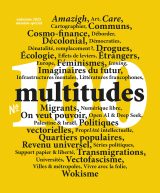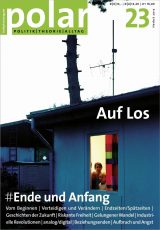Antonio Negri
is an Italian philosopher, writer and independent researcher. Among his numerous publications are
Articles
What makes a biopolitical space?
A discussion with Toni Negri
Toni Negri discusses the significance of urban space for new forms of opposition. The city, he says, is where the “political diagonal” intersects the “biopolitical diagram” – where people’s relation to power is most pronounced. Negri’s interlocutors are involved in exploring “soft” forms of activism, urban projects that create collectivities on micro, neighbourhood levels. Negri is critical of “soft” forms, however, preferring rupture and revolution over accumulation and gradual change.

Italien ein Jahr nach dem Schock von Genua
Die neue Bewegung Ringelreihen
Vor einem Jahr haben die Großdemonstrationen gegen den G-8-Gipfel in Genua die Italiener jäh wachgerüttelt. Einige Monate zuvor war die Linke hinweggefegt worden, und der mit überwältigender Mehrheit gewählte Silvio Berlusconi bildete sich ein, er könnte nun nach Belieben regieren. Doch Genua machte ihm einen Strich durch die Rechnung. Die Bewegung der Globalisierungsgegner hat die Bürger wieder mobilisiert, neue Kampfformen wurden entwickelt, die Offensive der arbeitenden Bevölkerung geht an zahlreichen Fronten unvermindert weiter. Paradoxerweise eröffnet der Sieg der Rechten, indem er eine erneute gesellschaftliche Mobilisierung provoziert, die Hoffnung auf eine Neukonstituierung der Linken und eine Umgestaltung der Republik.
Marx's Mole is Dead!
Globalisation and Communication
Drawing on their book Empire, Michael Hardt and Antonio Negri show how the resistance of the working class has prefigured the globalisation of capital. Now, they contend, we face a new, universal order that accepts no boundaries or limits – Empire. The local focus of a nostalgic Left is in this situation both false and damaging.


